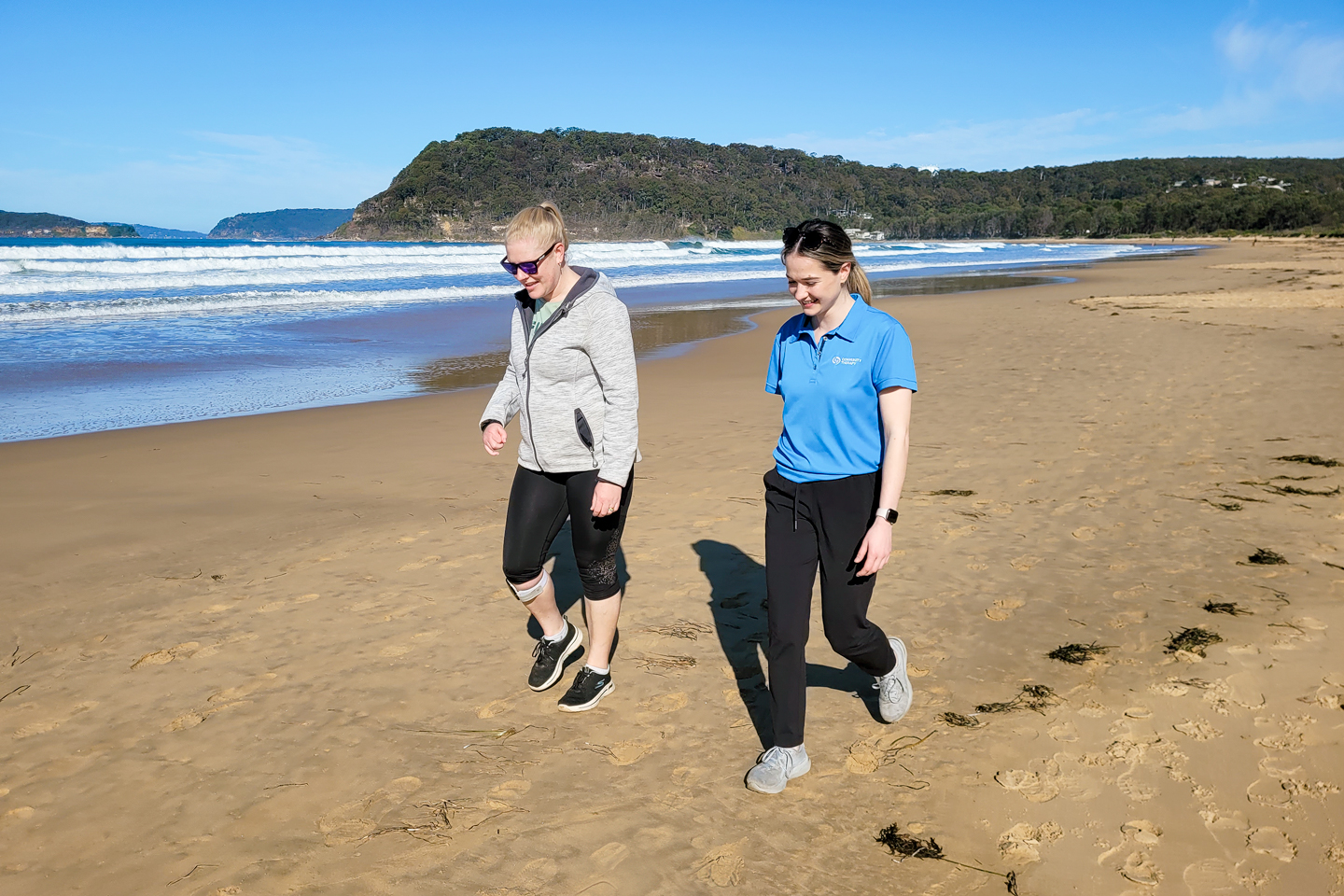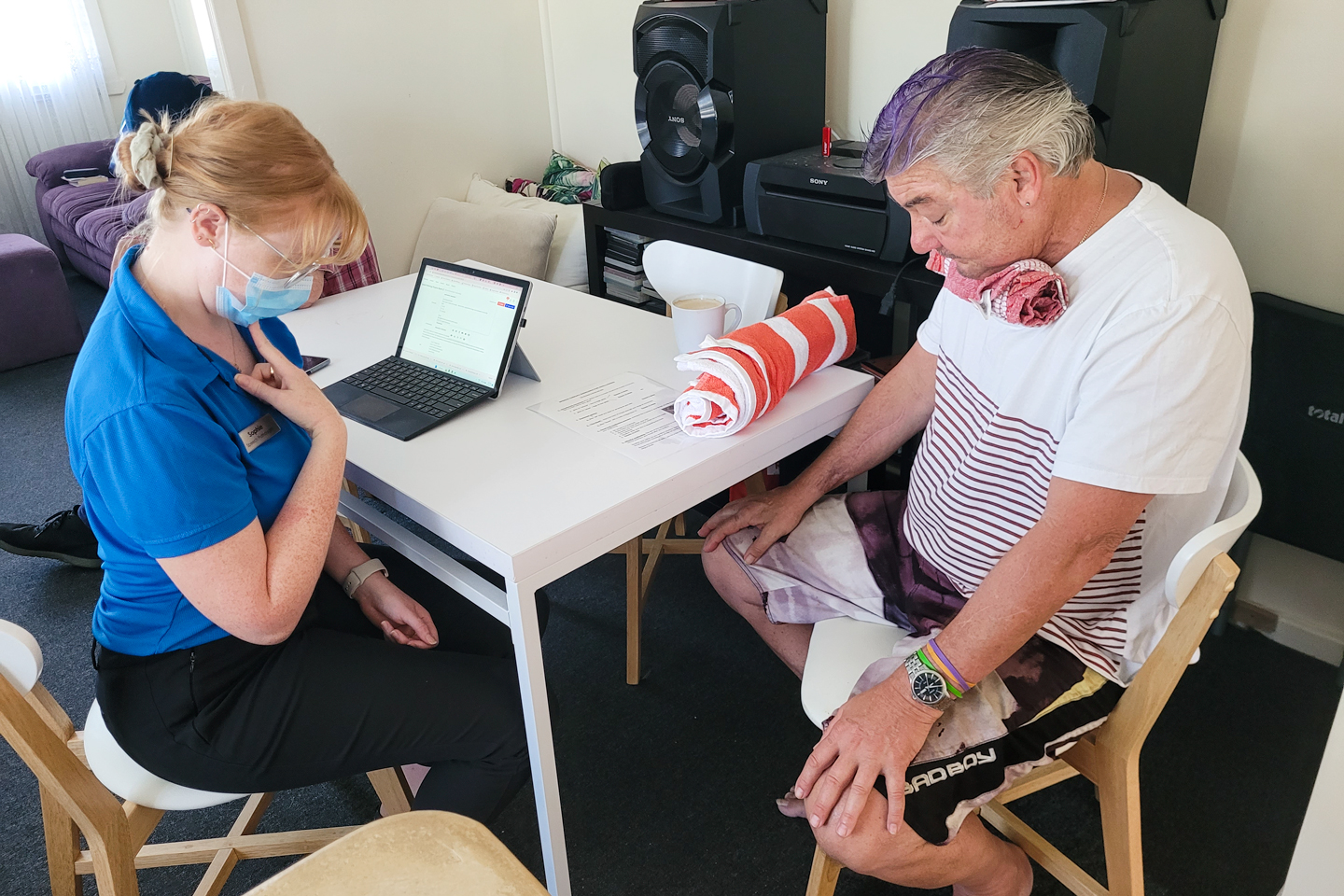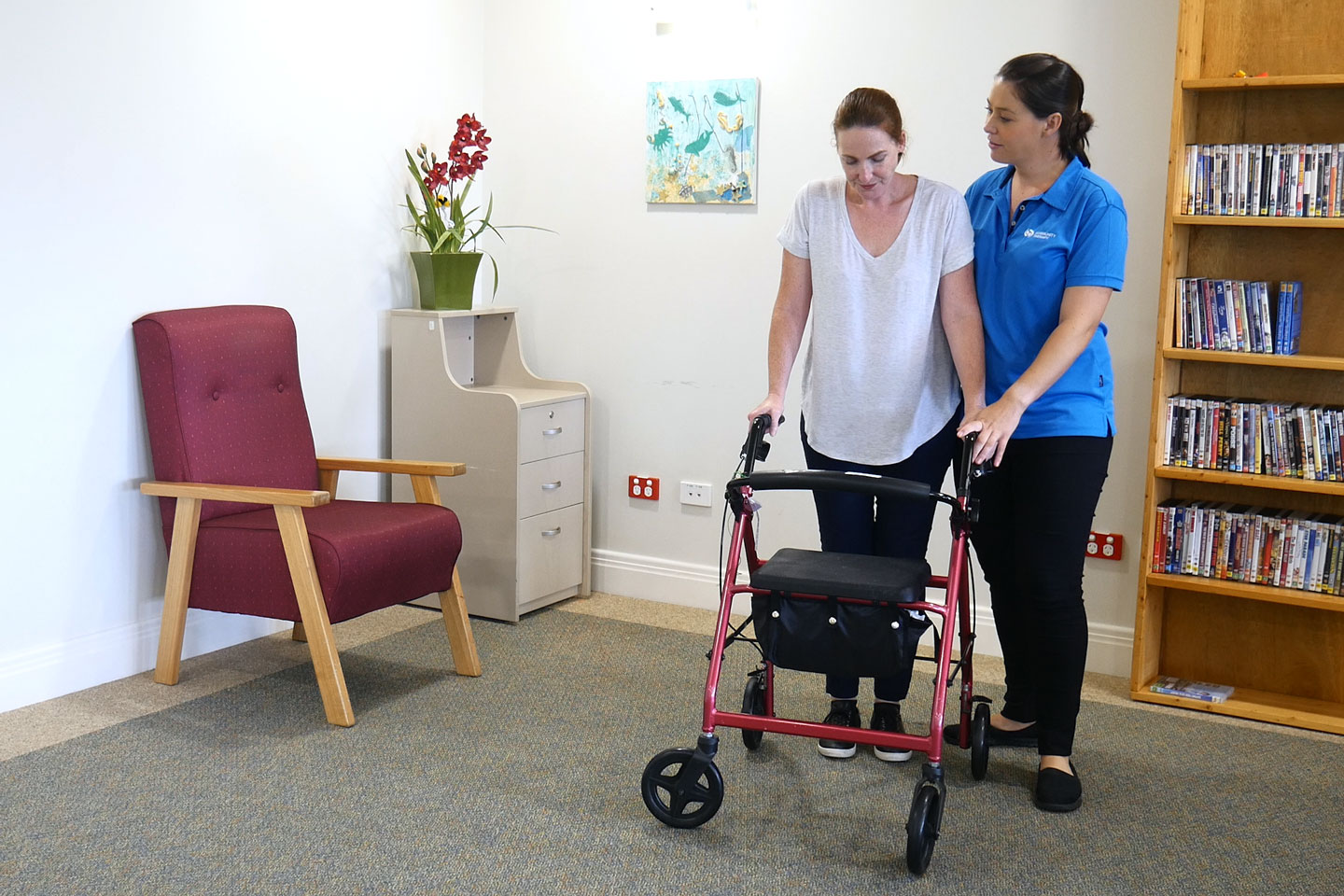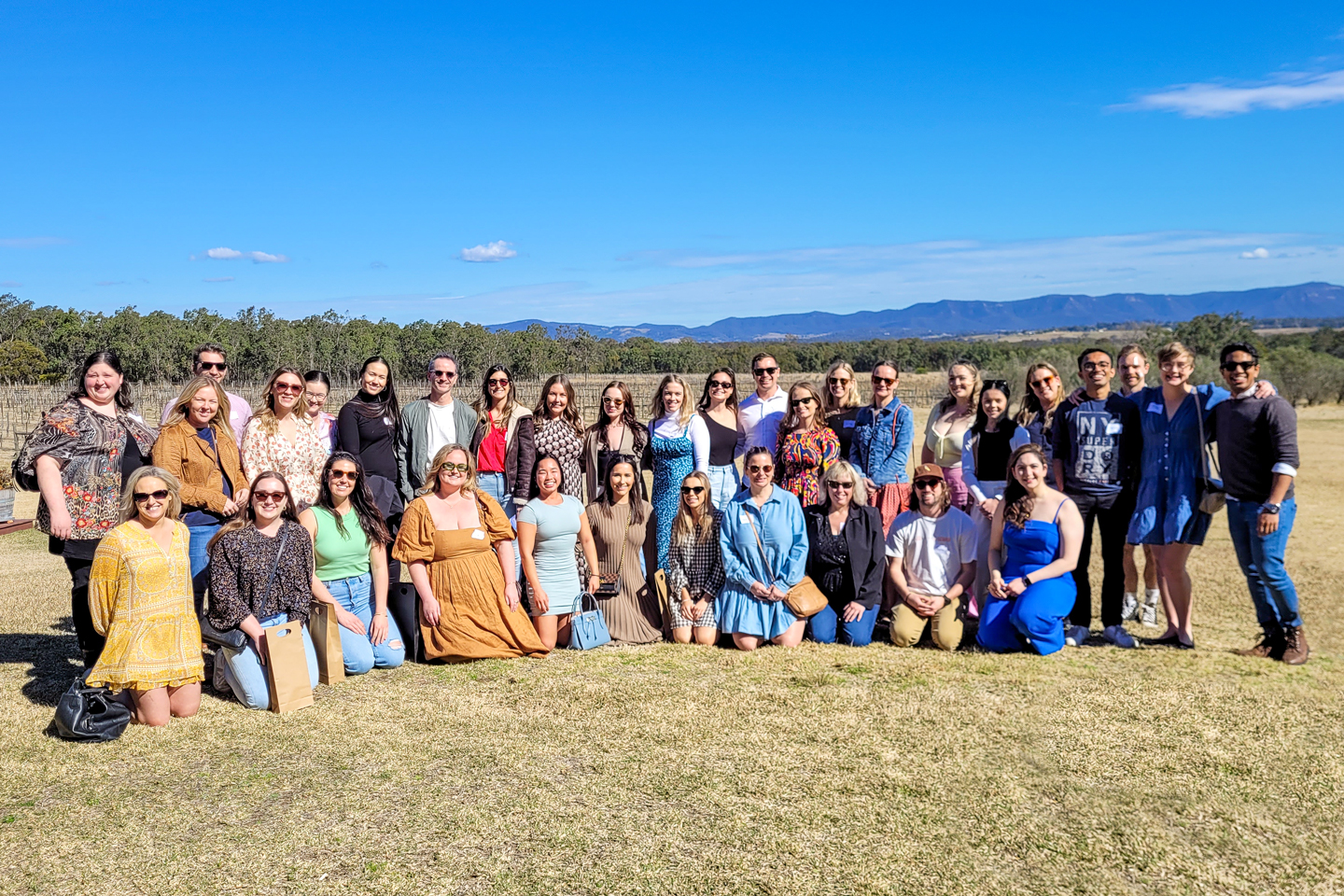Restorative Care Pathway
At Community Therapy, we believe that getting older shouldn’t mean giving up on the ability to rebuild strength, improve mobility, or live with greater independence.
That’s why we’re proud to support older adults through the Restorative Care Pathway, part of the Australian Government’s Support at Home program.
This short-term, intensive care model is usually for older adults who have recently experienced a setback—such as a fall, illness, or surgery—and who have the potential to regain functional capacity with the right support.

What Is the Restorative Care Pathway?
The Restorative Care Pathway is a 12-week program under the Support at Home model. It was developed from the merger of the former Home Care Package and Short-Term Restorative Care (STRC) programs.
The goal of this pathway is to deliver a focused period of allied health and/or nursing services aimed at helping older adults improve their strength, balance, mobility, and overall wellbeing following a significant life event.
With up to $6,000 in funding available for clinical services during the 12-week period, this is a truly impactful opportunity to meet meaningful goals in a short amount of time.

When Is the Restorative Care Pathway Used?
An older adult might access this pathway after being assessed by a Support at Home assessor who has identified a clear opportunity for them to improve their functional ability with intensive support.
Common examples include:
- Recovery after a fall or injury, particularly where mobility or confidence has been impacted.
- Following a surgery, such as a hip or knee replacement, where the person has completed their inpatient or outpatient rehab but still needs structured support at home.
- Situations where someone is experiencing a decline in independence but shows potential to regain confidence and capability with intensive support.
It’s important to note that a person cannot receive Restorative Care and regular Support at Home services at the same time—Restorative Care is intended to be a short-term, standalone intervention that can lead into longer-term care.

What Does “Intensive Allied Health” Mean?
Under this pathway, most older adults receive between one to three home visits per week from Allied Health professionals.
At Community Therapy, these services may include one or more of the following:
- Physiotherapy – to support strength, balance, and fall prevention
- Occupational Therapy – to improve daily living skills and home safety
- Exercise Physiology – for tailored exercise programs that restore capacity
- Speech Pathology – for communication, swallowing, or cognitive support
- Dietetics – to improve nutrition and energy during recovery
- Allied Health Assistants – to support therapy plans and increase frequency of care
This multidisciplinary approach ensures that every aspect of the person’s recovery is supported.

How Can Someone Access Community Therapy Through the Restorative Care Pathway?
In most cases, referrals to Community Therapy under this pathway are made by Support at Home providers who offer Restorative Care services. These providers manage the consumer’s plan and coordinate necessary care.
That said, if an older adult has been approved for Restorative Care and doesn’t know where to go next, they can contact us directly by:
- Calling 1300 031 935
- Using the website chat below or
- Using our contact page
We’ll help them navigate the process and connect them with the services they need.

What Happens After the 12 Weeks?
At the conclusion of the 12-week program, many older adults transition into ongoing Allied Health support through their Support at Home package.
The frequency and type of services are guided by the individual’s goals and their functional outcomes following the intensive support period.
Who Is Eligible?
Any older adult who has been approved for the Support at Home program and the Restorative Care Pathway is eligible to access Community Therapy’s Allied Health services under these programs.
We partner with providers across the Central Coast, Lake Macquarie, Newcastle, Hunter Valley, Port Stephens, and Mid North Coast regions, and are proud to be the largest Allied Health provider supporting older adults in these communities.

What Information Should Be Included in a Referral?
To help us get started, it’s important that referrals clearly indicate that the person is receiving therapy under the Restorative Care Pathway.
If possible, provide relevant clinical documentation and details about recent health changes, so our triage team can allocate the referral to the most suitable clinician.
We aim to see all Restorative Care clients within one to two weeks of receiving the referral, ensuring timely, targeted support.

We’d Love to Hear From You
The Restorative Care Pathway offers older adults the chance to recover, regain confidence, and return to the things they enjoy most.
At Community Therapy, we’re proud to deliver person-centred, evidence-based care that empowers people during key recovery moments.
If you’re a care coordinator or an older adult approved for restorative care, we’re here to support you. Let’s get started on the journey to rebuilding independence—together.


